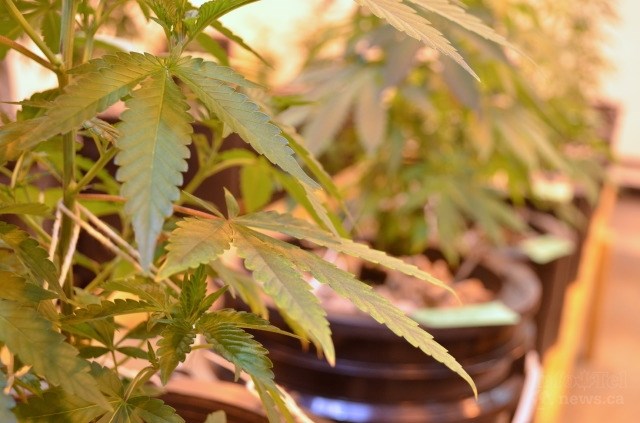
(CHARLOTTE HELSTON / iNFOnews.ca)
November 16, 2017 - 6:30 PM
KELOWNA - A cannabis activist lawyer says there’s nothing stopping Kelowna and West Kelowna from enacting their own regulations around personal production of medical marijuana in residential homes.
“Health Canada may not tell them where they are, that’s true, but they can certainly pass a bylaw that regulates cannabis production within a municipality,” Kirk Tousaw says. “It’s like dispensaries which are illegal but that hasn’t stopped a bunch of jurisdictions from trying to regulate them anyway.”
Both Kelowna and West Kelowna have said they wish they had more power to regulate personal production of medical cannabis in residential homes, complaining of commercial scale operations created when up to four licenses are grouped together.
Tousaw says Surrey in the Lower Mainland requires those with personal production licenses who want to grow in their home to keep to certain zones and register with the city.
“Whether that is constitutional, or not and whether anyone is paying attention, is anyone’s guess but municipalities can and have implemented these bylaws for years,” he adds. “It may or may not violate the Charter or it may or may not encroach on federal jurisdiction but it doesn’t stop them from trying.”
Tousaw says the new Access to Cannabis for Medical Purposes regulations are almost identical to the regulations they replaced and can lead to some large operations if a doctor is willing to prescribe a large daily amount.
“There was no maximum size of license then and there still will be no maximum,” Tousaw says, adding the location of personal production sites is considered private medical information by Health Canada and is not routinely provided to law enforcement.
“Health Canada is only entitled to disclose that information to police as part of an active investigation,” Tousaw says. “So municipal governments never had a right to that information and they still don’t.”
The new regulations came into effect in spring of 2016. Tousaw was one of the lawyers involved in arguing the Allard case before the Supreme Court that lead to the continuation of the home production program, which Health Canada had vowed to end.
He says the government has struggled to approve licenses under the new regulations with only about 10,000 or so issued across the country since last year.
To contact a reporter for this story, email John McDonald or call 250-808-0143 or email the editor. You can also submit photos, videos or news tips to the newsroom and be entered to win a monthly prize draw.
We welcome your comments and opinions on our stories but play nice. We won't censor or delete comments unless they contain off-topic statements or links, unnecessary vulgarity, false facts, spam or obviously fake profiles. If you have any concerns about what you see in comments, email the editor in the link above.
News from © iNFOnews, 2017